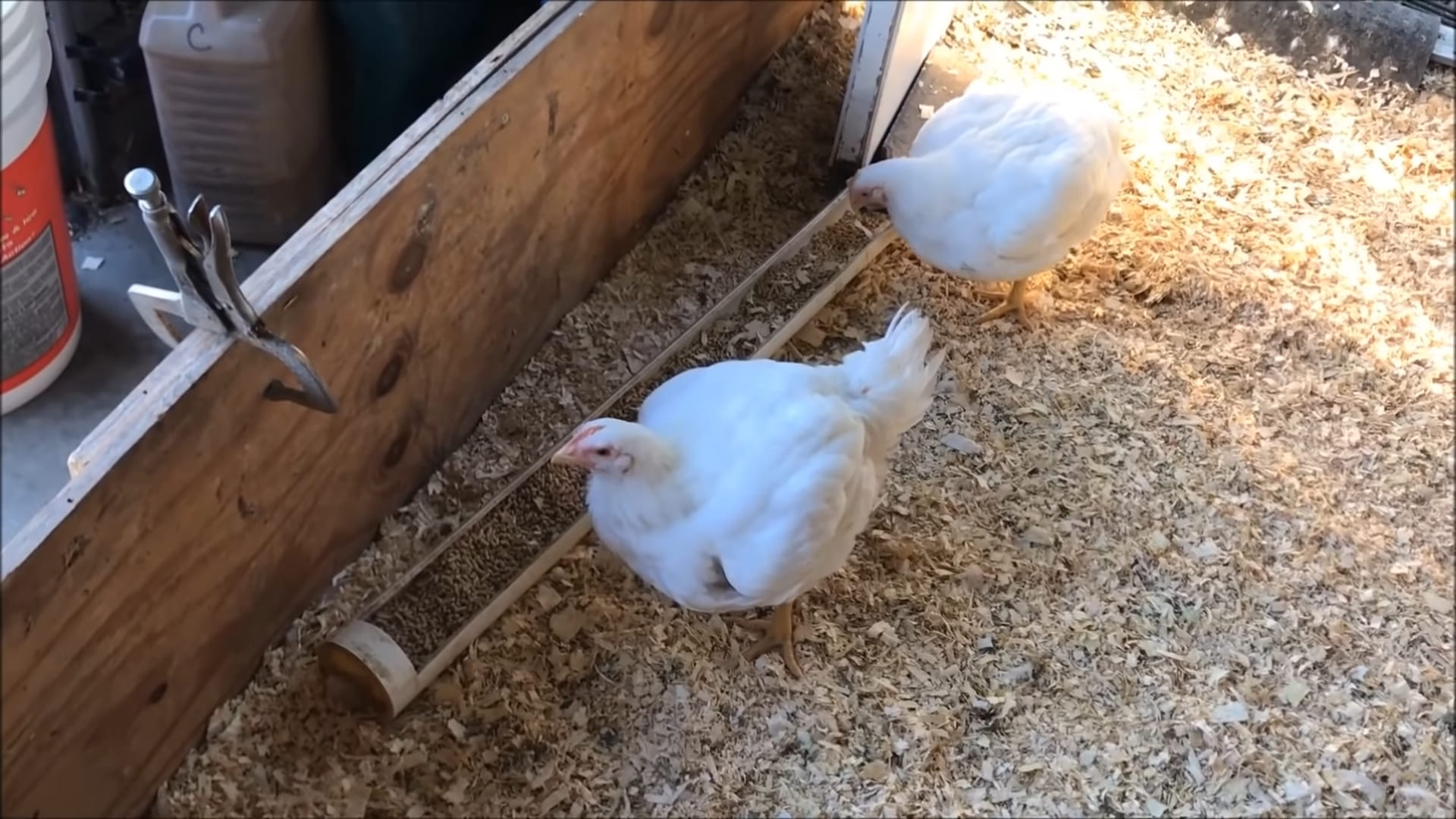Welcome to the world of poultry mastery, where the spotlight today shines on the iconic Cornish Cross chickens. These feathered friends have earned their place in the hearts of seasoned farmers and newcomers alike, thanks to their rapid growth and succulent meat. In this complete guide, we’ll delve into the intricacies of Cornish Cross care, from selecting the right chicks to ensuring a bountiful harvest. Let’s embark on this poultry journey together!
Understanding Cornish Cross Chickens
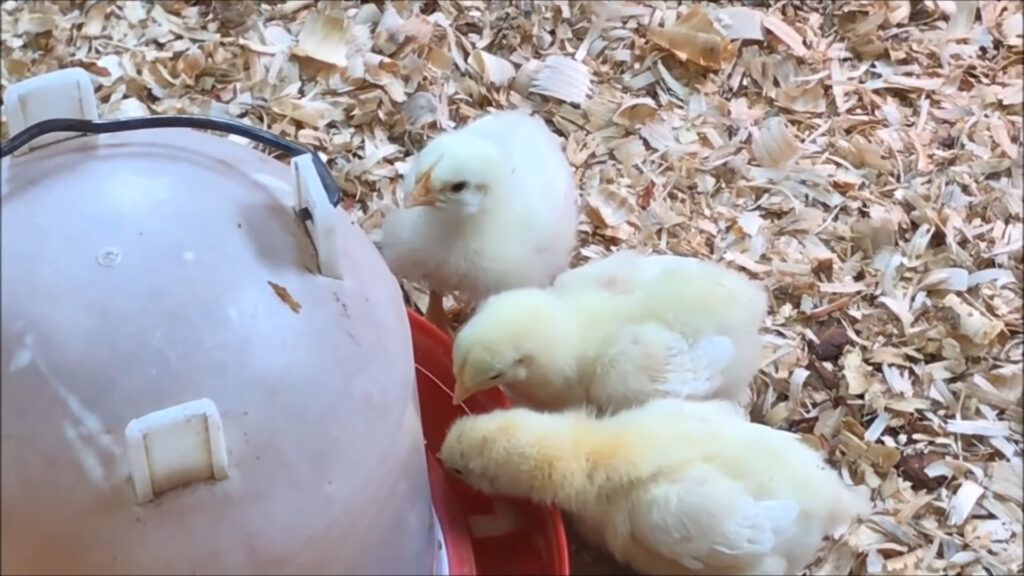
- The Marvel of Genetics:
Cornish Cross chickens are the result of carefully selected genetic breeding. A hybrid between Cornish and White Plymouth Rock breeds, these birds are renowned for their impressive growth rate, making them a popular choice for meat production. - Rapid Growth and Efficient Feed Conversion:
One of the standout features of Cornish Cross chickens is their rapid growth. Within a short timeframe, they reach a marketable weight, making them a preferred choice for those seeking efficiency in meat production. Their exceptional feed conversion rate also contributes to their economic appeal. - Selecting Healthy Chicks:
When venturing into Cornish Cross chicken farming, choosing healthy chicks is paramount. Look for lively, alert birds with clean feathers and bright eyes. Ensuring the chicks come from reputable hatcheries will set the foundation for a successful flock.
Housing and Environment
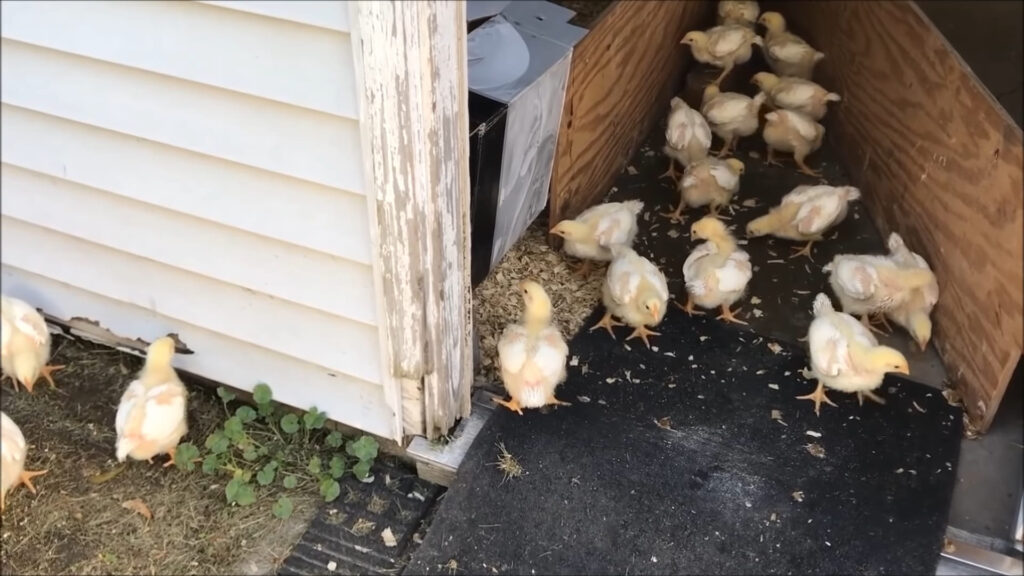
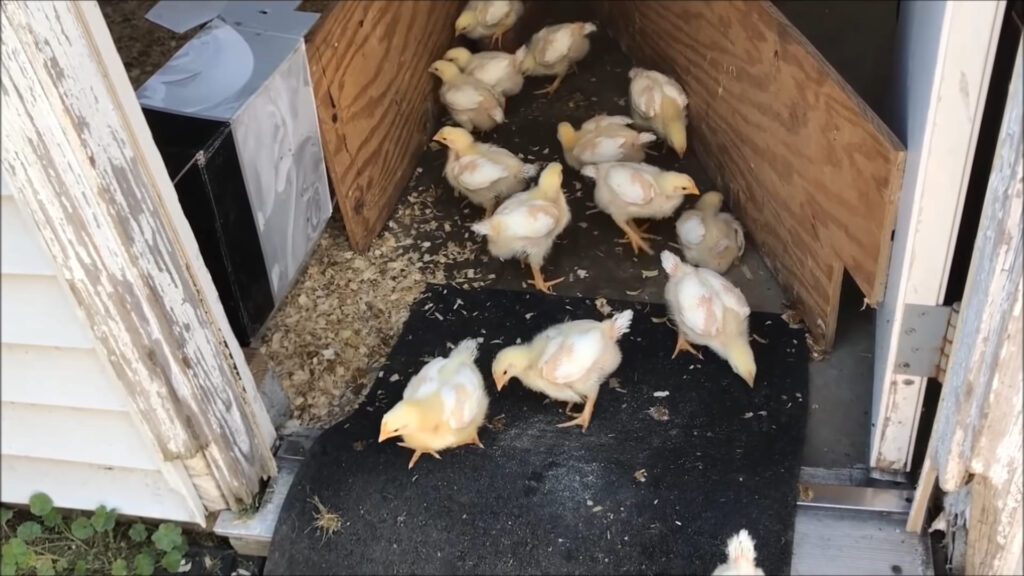
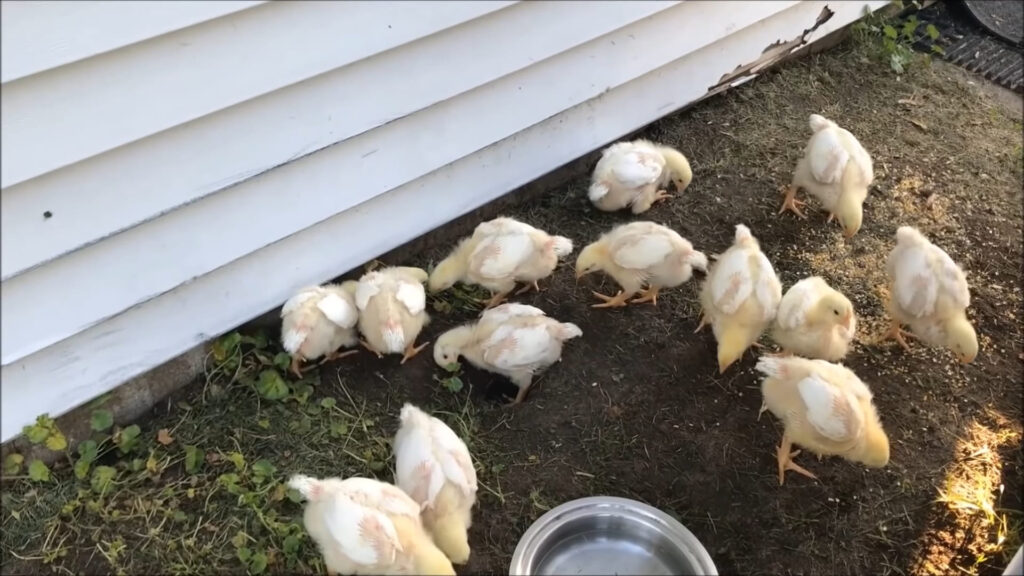
- Spacious Living Quarters:
Cornish Cross chickens may grow quickly, but providing ample space is crucial for their well-being. A well-ventilated and spacious coop or pasture allows them to move freely, promoting healthier development and minimizing stress. - Proper Ventilation and Temperature Control:
Maintaining optimal ventilation and temperature control in the chicken coop is essential. Cornish Cross chickens can be sensitive to heat stress, so ensuring proper airflow and cooling mechanisms will contribute to their overall comfort and well-being.
Nutrition and Feeding
- Specialized Feed Requirements:
Cornish Cross chickens have specific dietary needs to support their rapid growth. High-quality, balanced poultry feed with appropriate protein levels is essential. Consulting with a poultry nutritionist can help tailor a feeding plan to meet the unique requirements of these birds. - Controlled Feeding Schedule:
While Cornish Cross chickens are known for their efficient feed conversion, a controlled feeding schedule is crucial to prevent overeating and related health issues. Providing access to feed for limited periods throughout the day helps manage their growth rate more effectively.
Health and Well-being
- Vigilant Health Monitoring:
Regular health check-ups are imperative when raising Cornish Cross chickens. These birds can be more susceptible to certain health issues due to their rapid growth, so vigilance in monitoring for signs of illness is crucial. - Preventing Leg Issues:
Cornish Cross chickens are known for their large breast muscles, which can sometimes lead to leg issues. Providing proper support through clean bedding and surfaces, along with a diet tailored to support their bone health, can help mitigate potential leg problems.
Harvesting and Processing
- Timely Harvesting:
Knowing the right time to harvest Cornish Cross chickens is essential for achieving the desired meat quality. Typically, these birds are ready for processing between 6 to 8 weeks of age, depending on your specific goals for meat size and tenderness. - Humane Processing Practices:
Adopting humane processing practices is a responsibility for any conscientious poultry farmer. Ensure that harvesting is conducted in a stress-free and ethical manner, prioritizing the well-being of the birds throughout the process.
Mastering the art of raising Cornish Cross chickens requires a blend of genetics understanding, thoughtful care, and practical knowledge. By providing the right environment, nutrition, and vigilant health monitoring, you can ensure a successful and rewarding experience with these remarkable birds. As you embark on your journey with Cornish Cross chickens, may your coop be bustling with healthy, plump protégés ready to grace your table with delicious, homegrown meat. Happy farming!
How Many Eggs Do Cornish Cross Chickens Lay?
As a seasoned poultry aficionado, the question of egg production is pivotal, especially when it comes to the renowned Cornish Cross chickens. These birds, celebrated for their robust growth and succulent meat, bring a unique set of considerations to the table when it comes to laying eggs.
Cornish Cross chickens, primarily bred for meat production, are not prolific egg layers compared to traditional laying breeds. On average, a Cornish Cross hen may lay around 50 to 100 eggs per year. This modest egg production is a result of their genetic focus on efficient and rapid growth for meat purposes.
It’s essential for poultry enthusiasts to understand that while Cornish Cross chickens contribute to the table with their delectable meat, their egg-laying capabilities are secondary. If your primary goal is egg production, opting for traditional laying breeds would be a more suitable choice.
In conclusion, while Cornish Cross chickens may not be the go-to choice for a bountiful egg basket, their exceptional meat quality makes them a valuable addition to any farm. As you venture into the world of poultry keeping, balancing your flock with the right breeds based on your specific goals ensures a well-rounded and rewarding farming experience. Happy egg hunting and meat harvesting!
Why Cornish Hens Are Petite Powerhouses
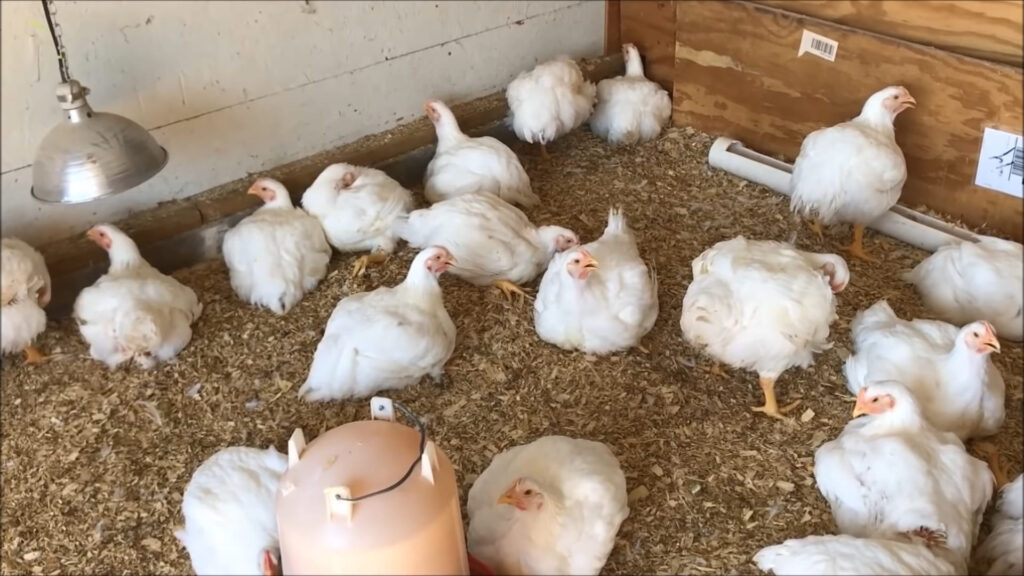
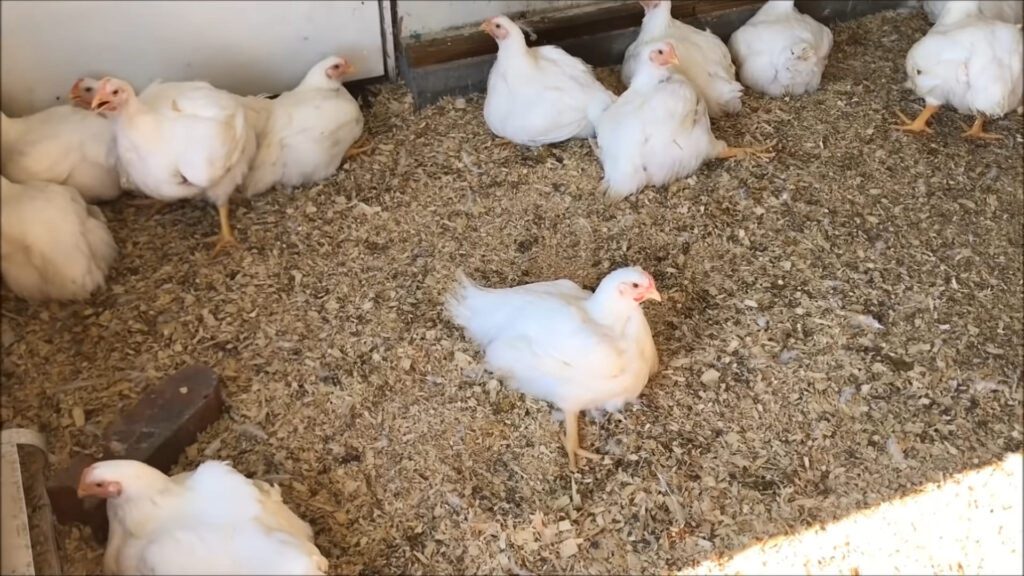
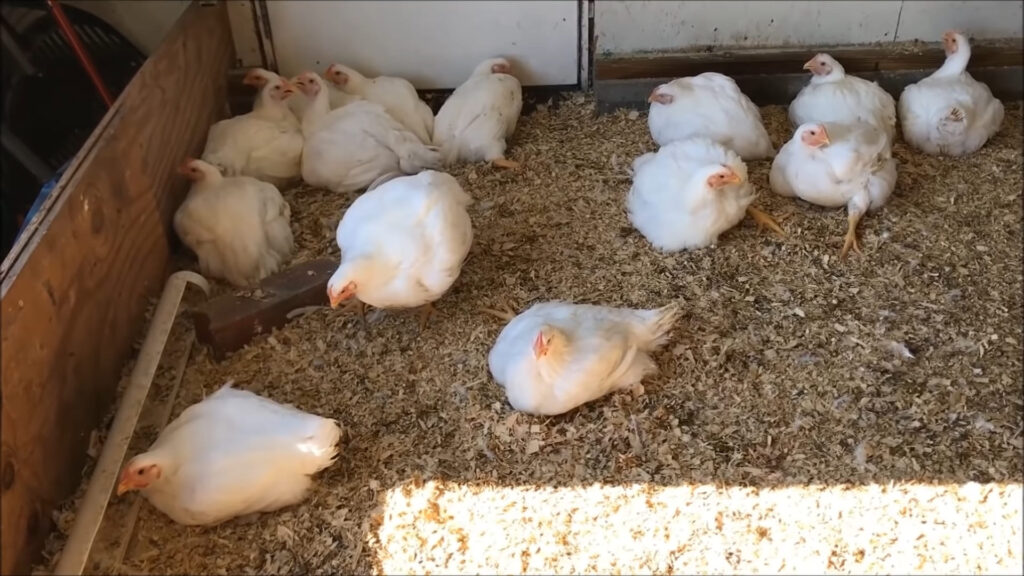
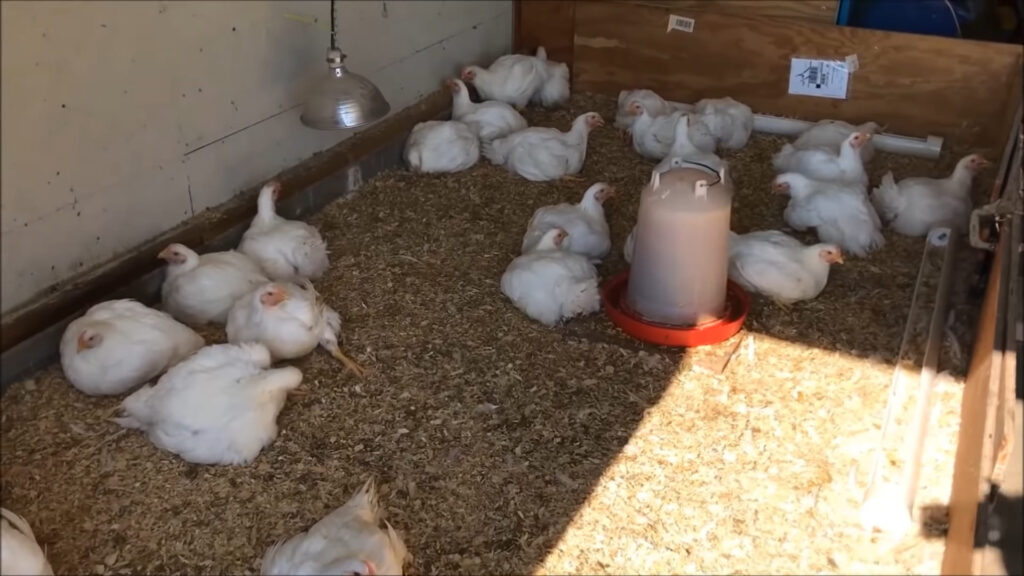
In the realm of poultry, the question of why Cornish hens are relatively small compared to their standard chicken counterparts often piques the curiosity of both novice and seasoned farmers. Let’s unravel the reasons behind the pint-sized stature of these culinary delights.
- Purposeful Breeding:
Cornish hens, a product of selective breeding, are intentionally designed to be smaller in size. This selective breeding focuses on creating a compact bird with a tender and succulent meat profile, ideal for individual servings. - Rapid Growth Rate:
Cornish hens are known for their rapid growth rate, reaching marketable size in a relatively short period. This efficiency in growth is a result of genetics tailored for meat production, emphasizing muscle development over an extended laying period. - Culinary Appeal:
The petite size of Cornish hens contributes to their culinary appeal. These small birds are perfect for individual servings, allowing chefs and home cooks to present an elegant and visually pleasing dish. Their smaller size also ensures faster cooking times, making them a practical choice for various culinar applications. - Flavor Concentration:
While Cornish hens may be small, their size doesn’t compromise flavor. The concentrated flavor profile in their meat results from the selective breeding that emphasizes muscle development and a well-balanced meat-to-bone ratio.
The small size of Cornish hens is a deliberate outcome of purposeful breeding for specific culinary preferences. As you savor the delightful taste and versatility of these petite powerhouses, remember that their size is not a limitation but a culinary asset crafted for a unique dining experience.
Will Broiler Chickens Lay Eggs?
Embarking on the journey of poultry farming often prompts questions about the various breeds and their egg-laying capabilities. A common inquiry revolves around broiler chickens, traditionally bred for meat production. In this article, we unravel the intriguing query: “Will broiler chickens lay eggs?”
Cracking the Broiler Egg Myth
Broiler chickens are primarily raised for their succulent meat, and their breeding is geared toward rapid growth. Unlike laying breeds, broilers aren’t prolific egg producers. However, this doesn’t mean they won’t lay any eggs at all.
The Broiler Egg Occurrence
While broiler chickens may lay eggs sporadically, the frequency and quantity are significantly lower compared to dedicated laying breeds. Factors influencing egg production in broilers include genetics, diet, and environmental conditions.
Genetic Influence
Broilers are selectively bred to enhance traits conducive to meat production, often at the expense of prolific egg-laying characteristics. This genetic focus influences their reproductive capabilities.
Dietary Impact
A well-balanced diet plays a crucial role. While broilers receive adequate nutrition for growth, a diet tailored for egg-laying breeds is essential to encourage any egg production.
Environmental Conditions
The coop environment and lighting conditions can influence broiler egg production. A stress-free, comfortable setting with consistent lighting may stimulate occasional egg-laying.
Conclusion: Decoding Broiler Egg Dynamics:
In summary, while broiler chickens are not renowned for egg-laying prowess, occasional eggs may surprise attentive poultry keepers. Understanding the genetic, dietary, and environmental factors at play is key to managing expectations. Broilers remain exceptional choices for meat production, with their occasional eggs serving as delightful bonuses rather than primary offerings
Author Profile

- a passionate poultry enthusiast with a deep love for chickens, has cultivated his affinity for avian companions since a young age.
Latest entries
 ChickensSeptember 14, 2023The Mystique Unveiled: A Guide to Ayam Cemani Chicken Egg
ChickensSeptember 14, 2023The Mystique Unveiled: A Guide to Ayam Cemani Chicken Egg ChickensSeptember 11, 2023Understanding the Characteristics and Care of Guinea Fowl Eggs
ChickensSeptember 11, 2023Understanding the Characteristics and Care of Guinea Fowl Eggs ChickensSeptember 3, 2023Fortify and Secure: A Guide to Fence in Chickens for Safe Flocks
ChickensSeptember 3, 2023Fortify and Secure: A Guide to Fence in Chickens for Safe Flocks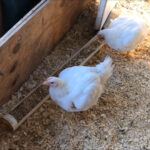 ChickensSeptember 1, 2023Discovering The Cornish Cross Chicken’s Secrets
ChickensSeptember 1, 2023Discovering The Cornish Cross Chicken’s Secrets
